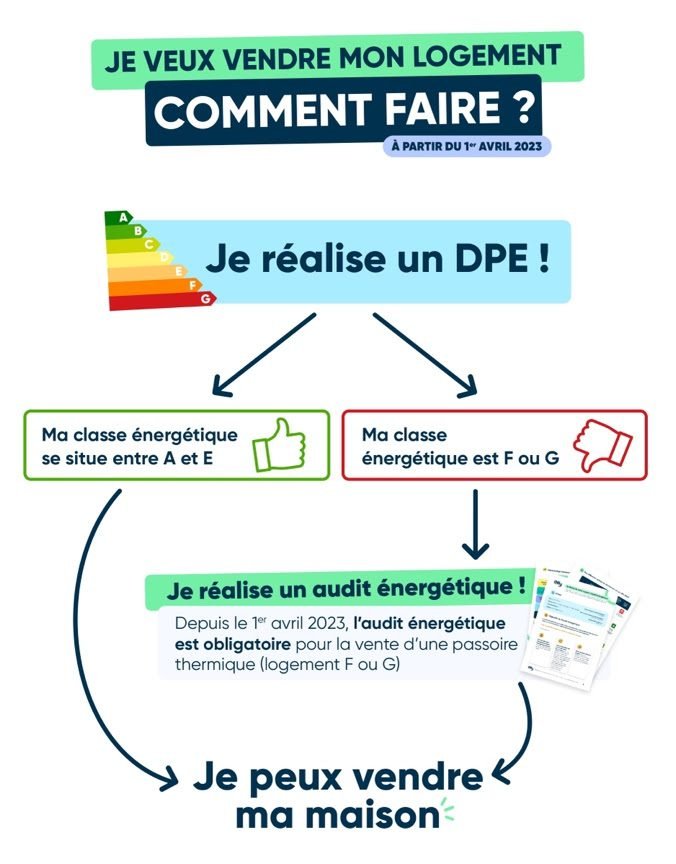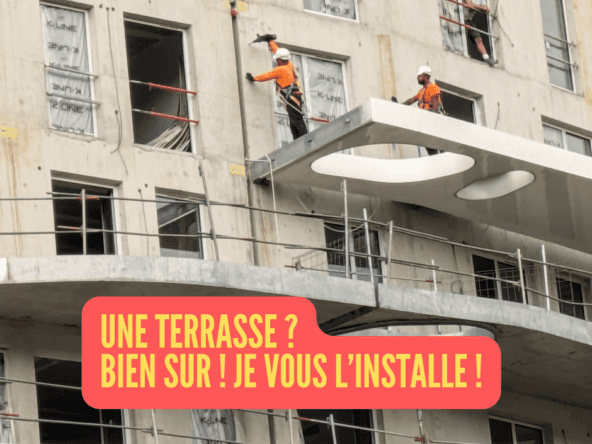In 10 days’ time, on 1 April 2023, we will be faced with a new obligation for the implementation of the energy audit.

When is an energy audit mandatory?
An energy audit is a detailed assessment of the energy and environmental performance of a home. First of all, it serves to raise awareness among owners and future buyers of the issues of ecological and energy transition. It then directs towards a set of relevant works to improve energy performance via several scenarios. But when is it mandatory?
Detached house: a mandatory audit for the sale of a thermal sieve.
Until now, only the energy performance certificate (DPE) was mandatory in the context of a property sale. With the strengthening of the legislation on thermal strainers, the DPE has been accompanied by an energy audit since 1 April 2023.
Not all property is affected by this measure. The following must comply:
- Real estate (detached houses in metropolitan France) classified F or G by the DPE (qualified as “thermal sieves”), when they are put up for sale;
- Properties for which the signature of the promise to sell (or deed of sale) was made on or after April 1, 2023(1).
However, this measure is intended to be gradually expanded. Homes classified F or G located in the overseas departments and regions will be concerned from 1 July 2024, while homes classified E will have to comply with this measure from 1 January 2025. D-rated single-ownership homes will have to carry out a mandatory energy audit from 1 January 2034.
The obligation to carry out an energy audit in order to benefit from aid (MaPrimeRénov’ Sérénité)
Another situation in which carrying out an energy audit is mandatory is the application for aid conditional on proof of real energy savings after work (such as MaPrimeRénov’ Sérénité). In fact, for your application to be eligible, the minimum energy gain obtained after work must be 55%. To prove this, an energy audit is therefore imperative.
The content of the energy audit
The content of the energy audit is also regulated by law. It should include:
- An inventory of the property for sale;
- An assessment of the current energy performance of the lot;
- At least two work scenarios to be carried out in several stages or in a single stage (to upgrade F or G dwellings to class C or to upgrade E or D dwellings to class B);
- The first step must lead to a gain of at least one class, and at least a class E (except for special constraints);
- Accuracy of expected energy savings;
- An estimate of the costs of the work;
- A reminder of possible public aid.
Entrust the energy audit to a Thermal Design Office (BET)
An energy audit can’t be done by just anyone. The legislation specifies that only qualified, impartial professionals who are independent of the owner can carry out an energy audit.
For single-family homes, you can call on design offices and companies qualified as “Energy Audit in Single-Family Houses” (OPQIBI 1911 qualification). These companies must be certified as “RGE global offer”. Real estate diagnosticians must also be certified, i.e. in possession of a certificate issued by a certification body, which must be attached to their audit.
Owners of single-ownership buildings must apply to the “Energy audit of buildings (tertiary and/or collective housing)” design offices (OPQIBI 1905 qualification). Societies of architects and architects registered with the Order and who have undergone training can also assist them on this subject.
What are the penalties for sellers who do not audit?
Neither the climate law “combating climate change and strengthening resilience to its effects”, nor the decrees and orders provide for sanctions for the moment in the event of sale without audit.
Beware, however, of potential buyers’ mistrust of an owner who does not comply with his legal obligations.



